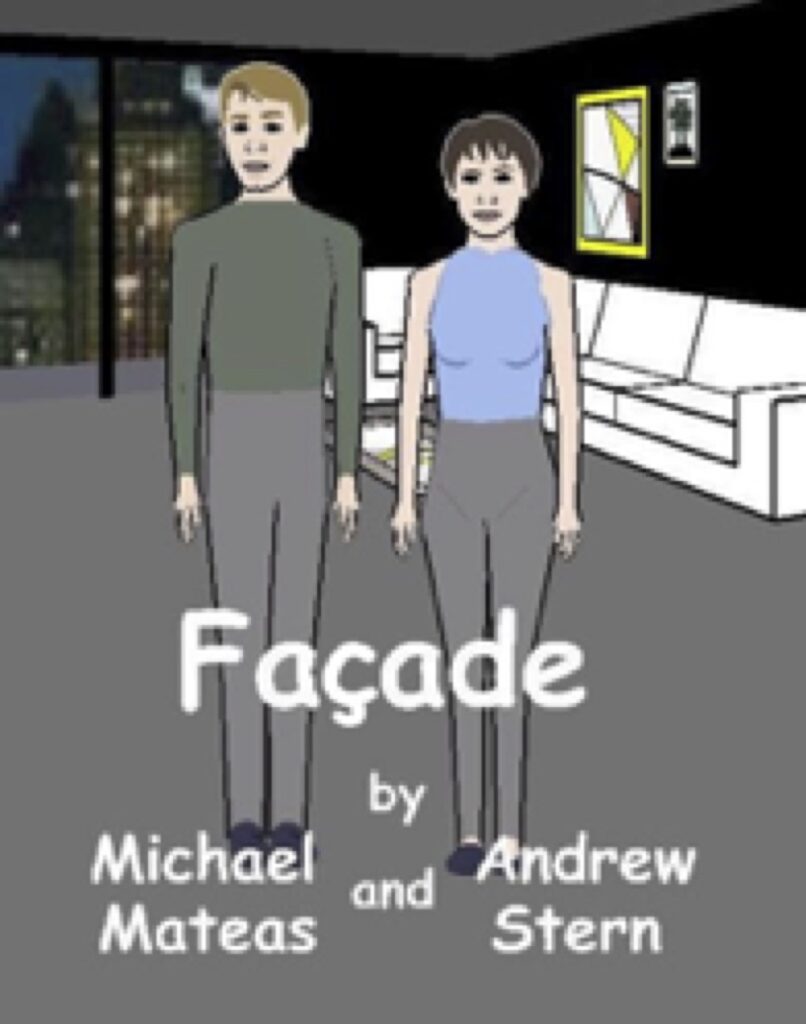Ian Meadows
Video games are a constantly evolving medium. Game developers are constantly trying to implement new and exciting mechanics into their games that will bring players in and keep them playing. One way to keep players playing is the “high score” method. Players will keep trying to get the highest score possible despite completing the game. Without this, if a player completes a game with a typical linear story, they are unlikely to replay the game as they have completed it. To combat this, a very popular trend in narrative based games currently is giving the player a variety of choices throughout the game that will impact either how other characters in the game treat your character or sometimes the ending of the game itself. Adding choices like this easily adds a replay value as many gamers want to see all the endings. This is known as interactive storytelling, or interactive drama. “A form of digital entertainment in which a storyline is not predetermined” (Bostan 28).

Source: https://ru.wikipedia.org/wiki/Fa%C3%A7ade#/media/File:Fa%C3%A7ade-intro.jpg
What were the first video games to use interactive storytelling? Many people give credit to the 2005 game Façade created by Michael Mateas and Andrew Stern. In Façade you play as a friend of Trip and Grace who has been invited to their apartment for drinks, while you are there it becomes glaringly obvious that something isn’t right between them and your goal is to try and fix their marriage. It uses language processing software that allows the player to “speak” to the two AI characters of Trip and Grace and depending on what you say it could result in a variety of outcomes from bringing the two back together to being forcibly shoved out of their apartment. While reviews were mixed, Façade helped usher in the wave of interactive storytelling in video games. The creators have stated that they consider this an “interactive theatre” more so than a game. They claimed that the goal was to create a dramatic experience as opposed to a fun game. (Rauch).

Source: https://en.wikipedia.org/wiki/File:Heavy_Rain_Cover_Art.jpg
One of the first interactive games to achieve mainstream success would be Quantic Dreams 2010 game Heavy Rain. You switch between four different protagonists throughout the game as you try to piece together the mystery of the “Origami Killer”. A serial killer who murders his victims by drowning them during heavy rainstorms. Your decisions affect the story and any of the four characters you control can be killed leading to many alternate endings. Heavy Rain was a massive undertaking for a video game during its time. It had over 4 years of development, a 2000-page script, seventy actors with 170 days of motion capturing and 60 days of animating. (Welsh)
Another major success in the interactive storytelling genre was Telltale Games 2012 game The Walking Dead based off the comic book series with the same name. The game follows Lee Everett who must try and survive the zombie apocalypse. Unlike Façade, The Walking Dead requires the player to respond to certain events by choosing between four pre-set answers. The answers you pick could simply change how other characters perceive your character or it could decide which characters live and die. The game received huge praise from critics and players alike. It earned numerous “game of the year” awards and was a massive financial success selling one million copies in 20 days. This was Telltale Games breakthrough success and they proceeded to continue to make more interactive storytelling games including: three more Walking Dead Games, and a variety of other franchises including Game of Thrones, Minecraft, Batman, and Guardians of the Galaxy. More were planned, however due to major investors backing out, Telltale Studios faced a majority studio closure followed by bankruptcy in 2018. (Crecente)
Lastly, I’d like to talk about one of my favourite game that uses interactive storytelling, Galactic Cafe’s 2013 game The Stanley Parable. Aptly described as a “walking simulator”. You play as Stanley, an office worker whose computer stops working, unsure what to do, you get up and find that your entire office is abandoned. As you are wandering the halls, the narrator who has been guiding you so far will tell you go down a certain path. However, there is another path you may take, and from there on out the player decides whether to listen to the narrator or go their own way as said narrator berates them for disobeying. Developer Davey Wreden stated in an interview, “The very first thing I asked with the game was ‘what would happen if you could disobey the narrator?’ And I actually had no idea what the answer was, so I just started designing a game around it to see what would happen!”. Wreden also said that the creation of the game came from “a desire to know something about video games that had never been explored.” (Mattas)
What’s exciting about interactive storytelling is this whole new level of engagement that it give the player. While game with a good linear story can be engaging in its own way, it can be dull at times knowing that the mistakes you make won’t have much of an impact outside of just delaying the inevitable end of the game. A game where your decisions will have consequences for the rest of said game is something that creates a lot of natural tension. With the advancements of graphics in general and the virtual reality, its very exciting to see just how engaging video games will be in the future.
Works Cited
Bostan, Barbaros., and Marsh, Tim “Fundamentals of interactive storytelling.” August 2012. https://www.researchgate.net/publication/268978507_Fundamentals_Of_Interactive_Stor ytelling. Accessed March 21, 2019.
Crecente, Brian. “How Masterful Narrative Game Makers Telltale Suddenly Lost Everything.” Variety. September 24, 2018. https://variety.com/2018/gaming/news/telltale-games-the- walking-dead-studio-closure-1202955309/. Accessed March 21, 2019.
Mattas, Jeff. “Interview: The Stanley Parable developer Davey Wreden”.” Shacknews. September 27, 2011. https://www.shacknews.com/article/70363/interview-davey-wreden- on-stanley-parable-remake-and-self-taught. Accessed March 21, 2019
Rauch, Jonathan. “Sex, Lies, and Videogames.” The Atlantic. November 2006. https://variety.com/2018/gaming/news/telltale-games-the-walking-dead-studio-closure- 1202955309/. Accessed March 21, 2019.
Welsh, Oli. “Heavy Rain’s David Cage.” Eurogamer. February 17, 2010 https://www.eurogamer.net/articles/heavy-rains-david-cage-interview. Accessed March 21, 2019